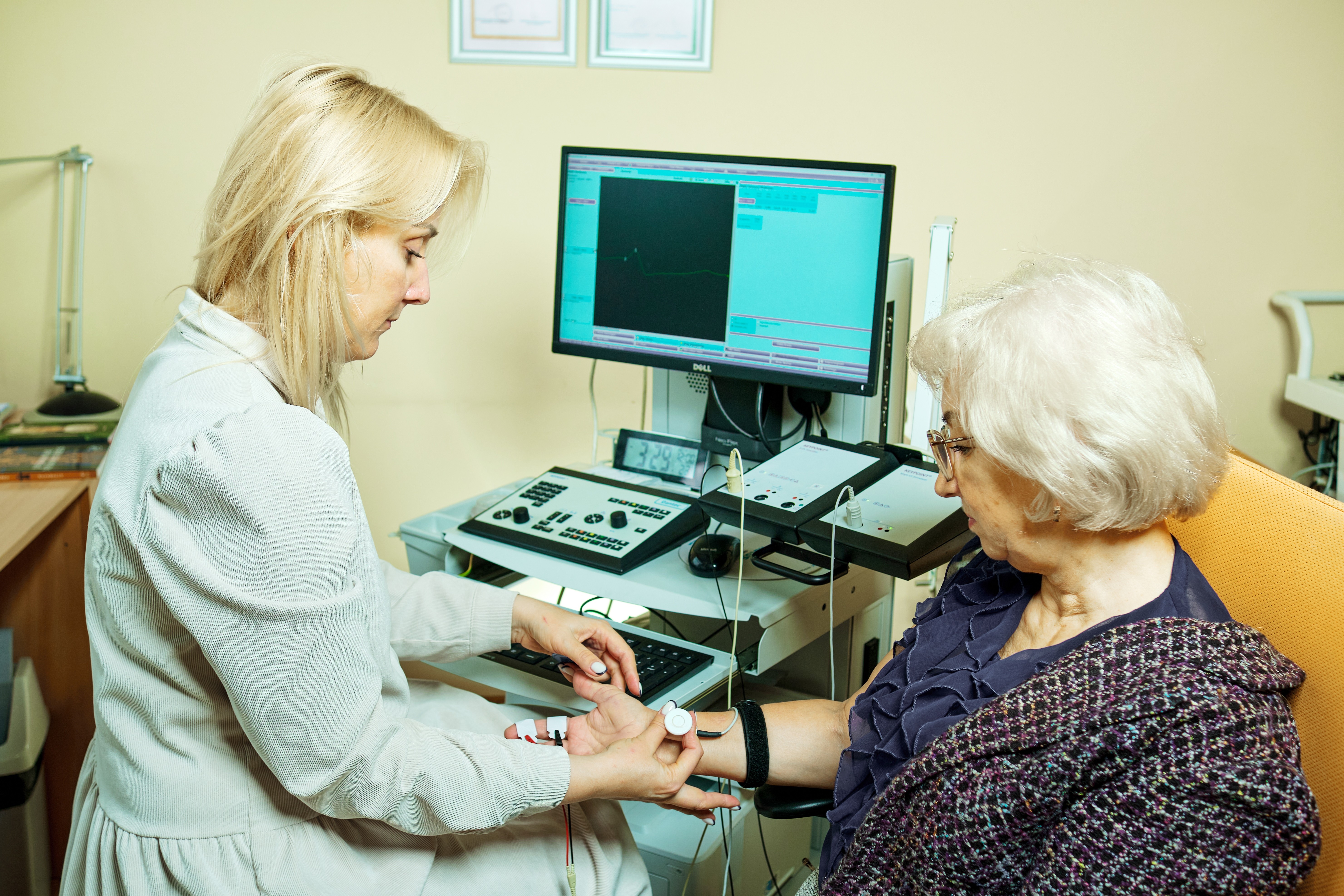Neurography (NG) and electromyography (EMG)

Neurography (NG) and electromyography (EMG) are a diagnostic procedures to assess disorders of nerve, muscle, and nerve-muscle synapse.
Neurography (NG) is the determination of the rate of transmission of pulses across nerve motors and sensory fibers. During the examination, specific electrodes are attached to the skin surface, stimulated with an electrical current pulse, and the data obtained is beeing analyzed.
Electromyography (EMG) is performed with needle electrodes and nerve and muscle health is assessed. During the examination, the needle electrode is inserted directly into the muscle, the electrical activity of the muscle is recorded and the data obtained is beeing analyzed.
Why are you advised to have this test?
Symptoms:
- Dehydration and / or numbness
- Muscle weakness
- Muscle pain or cramps
- Certain types of limb pain
Neurography with / without electromyography diagnose:
- Hand and foot compression neuropathy (Carpal tunnel syndrome, etc.)
- Traumatic nerve damage
- Polyneuropathy (Diabetes, toxic, etc.)
- Shoulder plexus damage
- Nerve root damage (intervertebral disc herniation, spondylosis, etc.)
- Motor neurone diseases (amyotrophic lateral sclerosis, etc.)
- Diseases of the anterior horn of the spinal cord
- Neuromuscular disorders (Myasthenia gravis and other myasthenic syndromes)
- Muscle diseases (myopathies, muscular dystrophy, myositis, etc.)
Are there risks to this investigation?
Neurography / Electromyography is a low-risk procedure and complications are rare. There is a risk of minor bleeding, infection and nerve damage. Disposable needle electrodes are used to reduce these risks.
What should you tell your doctor if you are scheduled for this examination?
- If you have any electrical medical device
- If you are taking medicines that affect blood clotting (anticoagulants)
- If you have a blood clotting disease (haemophilia or other)
- If you have a widespread skin infection
- If you have any other infections (eg hepatitis C, HIV, etc.)
How to prepare for this exam?
It is recommended to take a shower and not to use body creams or oils before the examination, because the electrodes may not hold to oily skin, which will complicate the examination.
What to expect from the examination?
The examination can take 30 to 60 minutes. During the examination, the neurologist will stick electrodes to your skin and the nerve will be stimulated with an electric current that will be subjectively felt. If necessary, the test can be continued with the needle electrodes inserted directly into the muscle, which can cause temporary discomfort and pain that resolves immediately after removing the needle electrode.
! The price depends on the scope of the examination
Cenas:
| Code | Service | Price |
|---|---|---|
| 30986 | PACIENTU IEMAKSA-NEIROELEKTROFIZIOLOĢISKIE FUNKCIONĀLIE IZMEKLĒJUMI | 4.00 € |
| 30002 | Neirogrāfija roku nerviem | 95.00 € |
| 30003 | Neirogrāfija kāju nerviem | 95.00 € |
| 30006 | Miastēnijas tests | 95.00 € |
| 30007 | Elektromiogrāfijas (EMG) izmeklējums ar adatu elektrodiem (vienā reizē tiek izmeklētas ne vairāk, kā 4 saknītes) | 120.00 € |
| 30008 | Neirogrāfija roku un kāju nerviem (polineiropātiju diagnostika) | 100.00 € |
Work hours
Ieva Zimaiša
Darba laiks mainīgs, lūdzam interesēties reģistratūrā












